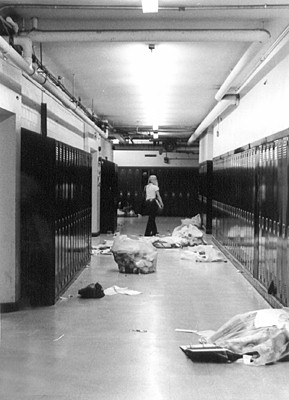All Nonfiction
- Bullying
- Books
- Academic
- Author Interviews
- Celebrity interviews
- College Articles
- College Essays
- Educator of the Year
- Heroes
- Interviews
- Memoir
- Personal Experience
- Sports
- Travel & Culture
All Opinions
- Bullying
- Current Events / Politics
- Discrimination
- Drugs / Alcohol / Smoking
- Entertainment / Celebrities
- Environment
- Love / Relationships
- Movies / Music / TV
- Pop Culture / Trends
- School / College
- Social Issues / Civics
- Spirituality / Religion
- Sports / Hobbies
All Hot Topics
- Bullying
- Community Service
- Environment
- Health
- Letters to the Editor
- Pride & Prejudice
- What Matters
- Back
Summer Guide
- Program Links
- Program Reviews
- Back
College Guide
- College Links
- College Reviews
- College Essays
- College Articles
- Back
Slowly I Met You
It was while on a walk that I asked my most trustworthy friend about a mutual friend of ours. I asked him if he agreed that this mutual friend had “broken.” My companion stopped. He stood. He said to me, “I think that Junior year breaks a lot of people.”
Few ask about my deepest feelings, and my “broken” friend least of all. It had been during a run one day when he let loose a little comment, when he off-handedly said, “It’s a friendship deal-breaker to talk about feelings.” I was disturbed. It was hard not to be. All my life I had heard that friends were supposed to tell each other their secrets, that friends were supposed to know everything about each other. Now here was this guy telling me no, that’s not the case, saying that emotions are deal-breakers. I should have taken it as a warning sign, a sign that something might be wrong. But this was my friend, my dear, charismatic friend. Clearly, closeness can be overrated.
No girl who “liked” him ever liked me, which seemed asinine at the time. There was never anything going on between us, no romance, nothing but an exciting companionship. Yet still, when in the presence of said “competitors,” I would endure constant passive-aggressive insults, and some not-so-passive ones. While swimming in his pool after a meeting at his house, I remarked upon how nice the water felt in a certain area, and was thrown the strangest glare I have ever received. “It’s because there’s a water heater there, dingus,” the girl said, glaring at me. I was not overly confused. That girl had hated me since my friend and I had sat together playing Settlers of Catan on a recent camping trip. What confused me more was how my friend accepted this girl. He saw what she felt, and he used it, twisting her around his finger. I tried to ignore this fact, choosing to stand anywhere else when they were together, talking. He couldn’t be leading her on, for he was my friend. He was just being friendly. Friendliness is a virtue to be sure, but I should have noticed the growing lack of it in him, at least, toward me.
Nobody liked my friend’s dad. Well, I guess my friend did, but he certainly didn’t love the man. It was during lunch one day, as we talked about adoption, that the boy next to me pointed out that it is scientifically easier to bond with a biological child. My friend, who was sitting diagonally across from me, looked at us and asked, “Why would anyone want to bond with his child?” This I could not ignore. It was no wonder that he had broken, that he had been unable to keep up his smooth, seductive persona, exemplified since grade school. Why would you want to bond with your child? Obviously, my friend had missed something, missed some crucial piece growing up with his control-freak pressure-cooker of a father. He was alone, unable and/or unwilling to let people get close to him, drawing girls in as a game of sorts. He was alone, and I couldn’t help him. I had to allow the pressure to keep eating at him. Remember, telling secrets, sharing emotions, sharing burdens, that’s a friendship deal-breaker.
No one would ever ask him what was wrong, for he was “broken” only to those who were closest to him.
I was one of those people.

Similar Articles
JOIN THE DISCUSSION
This article has 0 comments.